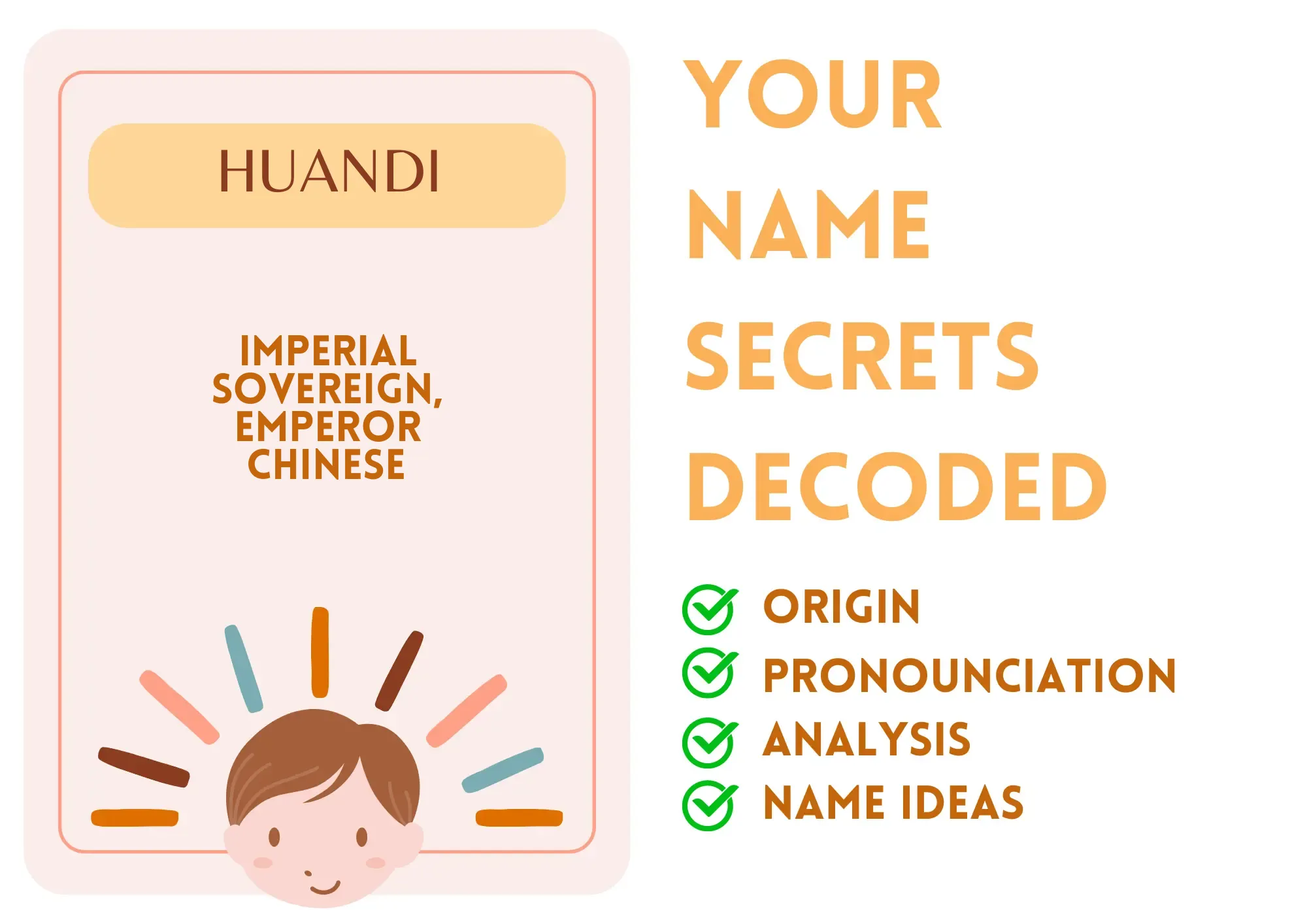
Huandi
Huandi is a unique name of Chinese origin, often translating to 'imperial sovereign' or 'emperor,' derived from its historical roots. Traditionally used for males, it carries significant cultural and historical importance in Chinese history, symbolizing leadership, authority, and governance.
In ancient China, the term 'huandi' was used to denote an emperor, making it a name adorned with power and high status. The connotations associated with Huandi evoke respect and dignity.
Although Huandi is not widely found in popular culture, it may resonate well with parents looking for a name that denotes strength and regal qualities. It is not commonly perceived as mainstream, which adds to its uniqueness.
Basic Information
Gender: Boy
Sounds Like: HWAN-dee
Pronunciation Explanation: The first syllable 'Hwan' rhymes with 'wan', and the second syllable is pronounced like 'dee'.
Summary and Meaning
Meaning: imperial sovereign, emperor (Chinese)
Origin: Huandi has roots in Chinese culture, closely associated with the rulers of ancient dynasties.
Usage: Huandi is traditionally a masculine name, embodying authority and power.
Name Number (Chaldean)
Name Number (Pythagorean)
Popularity (Global Rank)
Overall: 834989
Boys:
Most Popular in
Religious and Cultural Significance
Religion: Buddhism
Background: While not strictly a religious name, Huandi has been respected in various Chinese philosophical contexts, including Buddhism, and denotes historical governance.
Cultural Significance: Huandi reflects historical importance tied to Chinese dynastic history and metaphysical governance, symbolizing the emperor's supreme leadership.
Historical Significance: Historically, Huandi refers to emperors in ancient China, particularly notable leaders who shaped the course of Chinese civilization.
Popular Culture
Literature and Mythology: Although not a common name in modern literature, its historical roots provide depth and significance when referenced in discussions about imperial leadership.
Movies and Television: Huandi is seldom used for character names in films or shows but may appear in narratives focusing on ancient Chinese history and governance.
Feelings and Perceptions
Perception: The name Huandi is seen as strong and dignified, evoking respect and authority. However, its unfamiliarity may lead to mispronunciations or off-putting sentiments for some.
Positive Feelings: Strong, regal, unique, dignified, respected.
Negative Feelings: Might feel too unfamiliar or complex, leading to misconstrued pronunciations.
Practical Considerations
Ease of Writing and Calling: Huandi is relatively straightforward to write and pronounce, consisting of six letters and two syllables, making it easy for others to recall.
Common Typos and Misspellings: Wandi,Huangdi,Huan-di
Common Nicknames: Huan,Didi
Huandi Popularity
Huandi Usage and Popularity By Country
| Country | Rank (Overall) |
|---|---|
| Peru | 26797 |
| United Kingdom | 182431 |
| United States | 539518 |
Huandi Usage and Popularity By City
| City | Rank (Overall) |
|---|---|
| Peking | 9147 |
Compatibility Analysis
Famous Persons Named Huandi
No results found for Huandi.
Related Names
Similar Sounding Names:
Huan,Kandi,Mandi